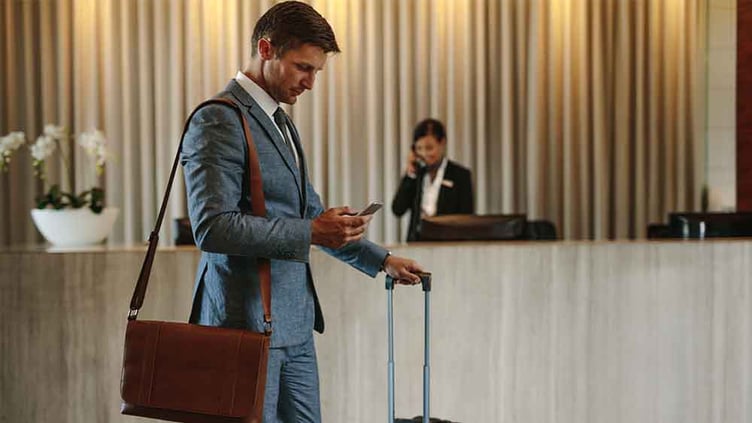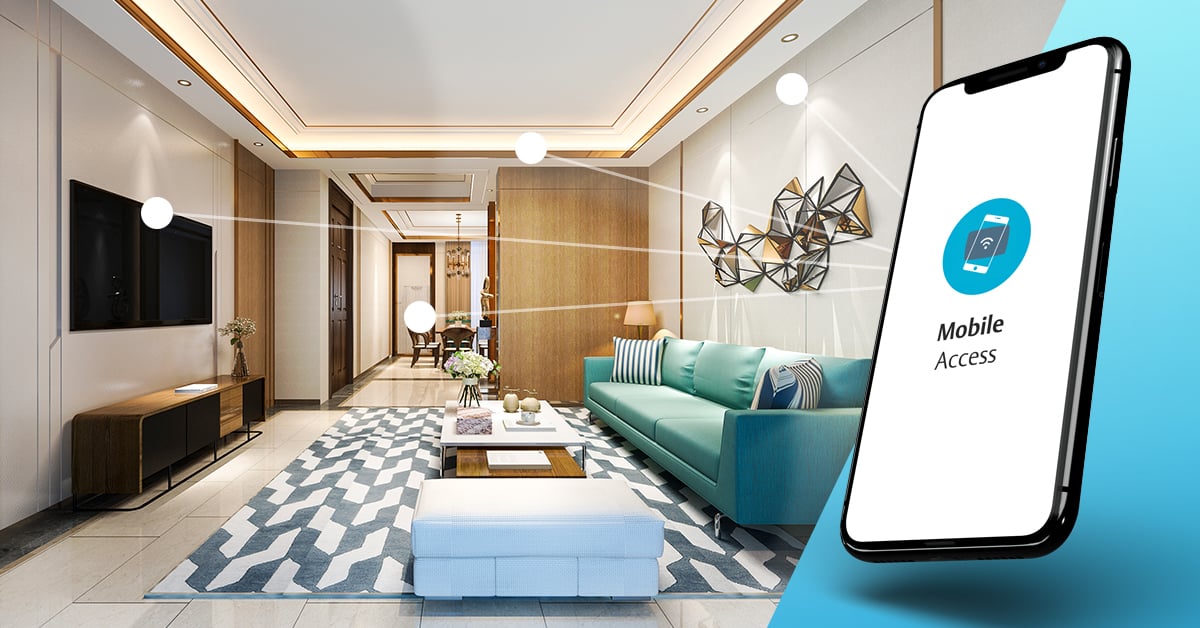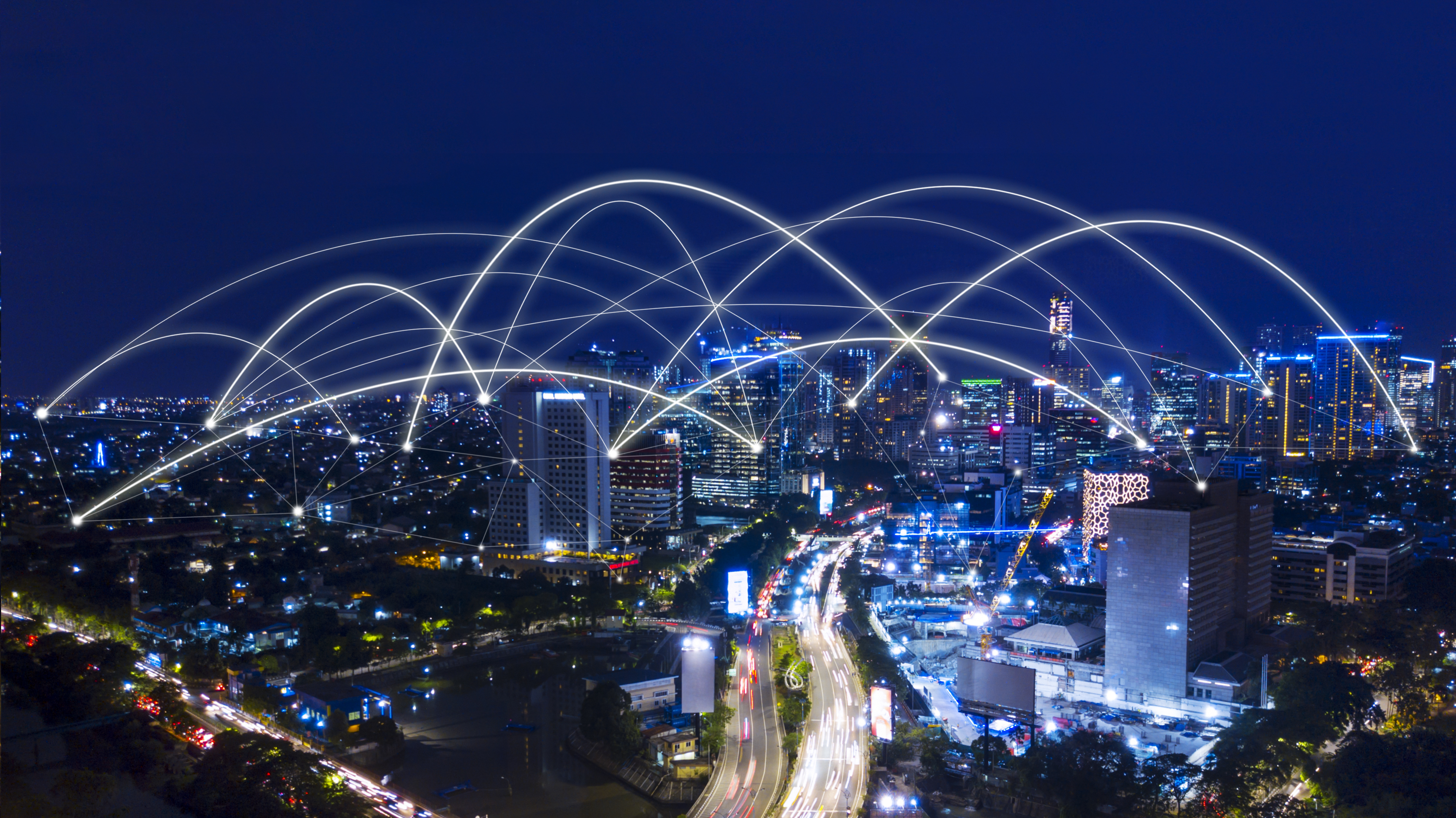 As the hotel industry continues to deal with reduced rates, sub-optimal occupancies, and a reduction in amenities and services, adopting an integrated systems approach is becoming more of a necessity in order to maintain operations that meet guest satisfaction expectations. Following the spread of Covid-19, hoteliers have greatly increased investments in technology in order to reduce expenses and increase efficiencies. With fewer employees helming a property and less room for errors, hotels are taking the next steps for improving performance beyond the current instability.
As the hotel industry continues to deal with reduced rates, sub-optimal occupancies, and a reduction in amenities and services, adopting an integrated systems approach is becoming more of a necessity in order to maintain operations that meet guest satisfaction expectations. Following the spread of Covid-19, hoteliers have greatly increased investments in technology in order to reduce expenses and increase efficiencies. With fewer employees helming a property and less room for errors, hotels are taking the next steps for improving performance beyond the current instability.
Converting Your PMS into an Agile Profit Center
Why invest in new PMS technology now, when budgets are constrained and the future is uncertain? Over the past cycle, innovations in on-property technology have paved the way for PMS integrations to improve revenue and increase brand loyalty by tracking customer behavior and gathering pertinent data. This information can be used to improve marketing strategies and increase the potential personalization of a guest’s stay, creating more upsell opportunities in the process.
One thing is for certain, right now hoteliers cannot afford to have their PMS act as a cost center, as opposed to a profit center. A large number of hotels today are also still using outdated systems that require a great deal of maintenance and effort to maintain. However, modern PMS tools live primarily on the cloud, allowing hotels to forgo expensive and large local servers. Additionally, cloud-based technology can be easily updated in real time, allowing hotels to focus on guest interactions.
Cloud-based technology also has the added benefit of being more nimble, and can often be accessed using mobile devices or through web browsers as opposed to cumbersome applications that are only available on select platforms. The utility offered by a modern PMS allows hoteliers to integrate point-of-sale and revenue management operations directly into one system, which operators can then bring with them throughout the property.
Operators must find new ways to remain agile in the process of fulfilling the guest experience, and it’s becoming more difficult to fulfil these demands from the back office. The value behind such technology has yet to be realized today, but with guests increasingly calling for hotels to interact with them on their terms and social distancing likely to continue in earnest for at least 18 months, operators should be prepared to consider such integrations. Studies show that increasing customer retention rates by 5 percent can grow profits by 25 percent to 95 percent, a figure hoteliers cannot afford to ignore right now.
Considering the impact that integrations such as these can have on a hotel’s operations or bottom line, it is in operator’s best interests to invest in systems that accommodate open APIs. As the business of maximizing bookings and revenue management continues to grow more complex and involved, the systems used to power these aspects of hospitality require access to data in greater amounts. Hotels with antiquated systems unable to interact and share data with each other will face more difficulties over time attempting to compete with properties executing a focused, integrated technology strategy.
Intelligent Guestrooms of Today
Modern technology is helping hoteliers behind the scenes, but tech integrations are equally important in the guestroom. Early guestroom technology was designed to entertain travelers or provide them with information about the property or local area, but today’s tech focus is all about providing greater control over the travel experience. The most impactful guestroom tools on the market today are designed to smoothly create a contactless experience, and none of this is possible if key components of your property are not fully integrated with each other.
The hotel industry’s biggest objective today is to restore guest confidence. Travelers need to be reassured that hotels have their safety in mind, and the industry has responded by emphasizing the strides it has made over the past decade in offering mobile check-in, and apps or services designed to help guests stay in contact with hoteliers without physically interacting. Other key technologies being embraced by guests right now include smart thermostats, adjustable lighting, and digital maps of hotels to help guests move around a property without requesting assistance.
 Fully digital interactions have been a pipe dream for many guests throughout the past hospitality cycle, and the number of travelers choosing to skip the front desk using mobile check-in was already on the rise. The hotel industry, in its haste to meet the challenge presented by Covid-19, has made several material gains in providing this technology to guests over the past six months. The biggest barrier facing operators now is that hotels require more than electronic door locks and a guest-facing mobile app to pull off an impactful contactless guest experience. Instead, properties are required to take on a fully connected ecosystem guests can use to interact with a property throughout their stay.
Fully digital interactions have been a pipe dream for many guests throughout the past hospitality cycle, and the number of travelers choosing to skip the front desk using mobile check-in was already on the rise. The hotel industry, in its haste to meet the challenge presented by Covid-19, has made several material gains in providing this technology to guests over the past six months. The biggest barrier facing operators now is that hotels require more than electronic door locks and a guest-facing mobile app to pull off an impactful contactless guest experience. Instead, properties are required to take on a fully connected ecosystem guests can use to interact with a property throughout their stay.
Hotels cannot afford to sacrifice aspects of the guest experience right now, and operators need to have access to as much information as possible to provide a contactless experience. For example, operators need to be aware of when a guest is on property, or even in their guestroom, in order to maximize the value of the reduced number of interactions taking place during each stay as physical interactions become less frequent.
Hotels also need to automate as many of these processes as possible during this period in order to manage expenses. “Smart” guestrooms capable of automatically setting temperature controls based on whether or not a guest has checked in, or if they are no longer in the guestroom, are crucial to keep properties with limited occupancy from being drained by utilities costs.
Technology has the potential to offer more beyond operational efficiencies, it can be used experientially to create a one-of-a-kind stay. For example, lighting controls and guestroom entertainment options, such as the TV or even personal voice assistants, can be programmed to provide personalized “welcome” experiences for guests who are unlikely to stop at the front desk. By taking these guests’ needs into account, hotels are able to extend the true nature of hospitality to guests who choose to avoid traditional customer touchpoints, preserving a high-quality experience for every traveler.
The Mobile Network
As stated previously, part of the digital guest experience includes integrating the hotel PMS with guest-facing mobile apps to meet guest expectations for an instant, contactless stay. These integrations serve a dual purpose, first by giving guests the power to enjoy their ideal stay experience through offering them more choice and control over the check-in process, and also by reducing travelers’ reliance on OTAs by creating a greater incentive for guests to use your hotel’s mobile app.
By gating the tools used to enable a contactless stay experience behind direct bookings and branded apps, hotels are able to create and cultivate their own mobile access ecosystem. In order to maintain a contactless stay experience, operators will need to provide guests with the means to order amenities, request hotel information, report complaints, and escalate concerns to hotel staff.
Services such as AI-controlled chatbots are growing in sophistication each year and are already in use across the industry, in addition to voice assistants which provide a hands-free method of interacting with a property, such as making calls to the front desk or ordering transportation. Similar functionality also exists on guests’ personal smartphones through a number of available apps, and it is up to hoteliers to decide which implementation best serves their property.
Hoteliers have been aware for years that factoring mobile apps into the hotel experience is correlated with higher guest satisfaction. Now it is up to the industry to follow through on these findings to surmount the current economic challenges faced by the industry and evolve into leaner, more competitive entities in the years to come. In 2017, J.D. Power found that 70 percent of reward member guests have downloaded a hotel’s mobile app and demonstrate greater satisfaction and loyalty towards the hotel brand. This represents an opportunity that many more hotels can benefit from, if only they would consider a more robust mobile strategy.
What was once convenient has now become a necessity. Hotels have been comfortably doing business the same way for as long as the industry has been in existence, now it is time to embrace the sea change taking place in society in order for hospitality to grow. The push for a contactless hotel stay can be felt across every segment of the industry, and it is up to operators and their technology partners to see it through.








 © ASSA ABLOY
© ASSA ABLOY
Submit you comment
We look forward to your comments/feedback.